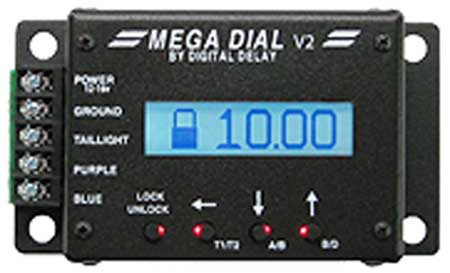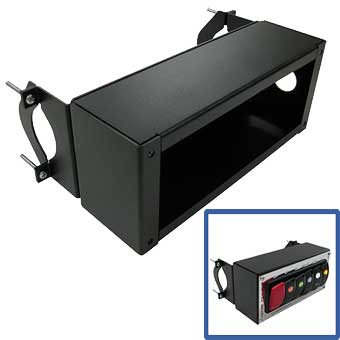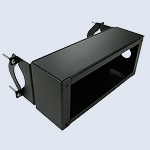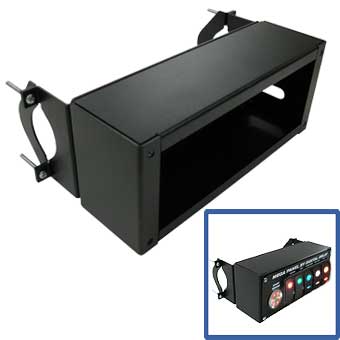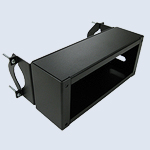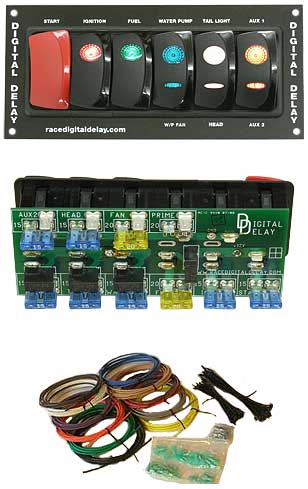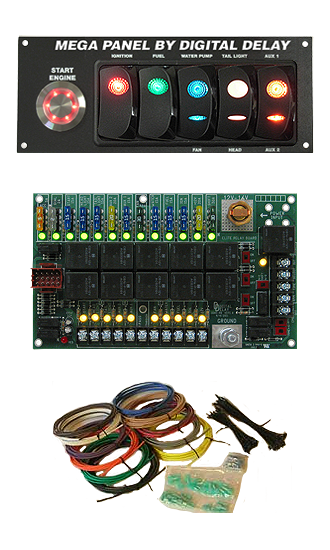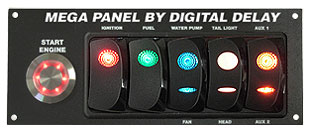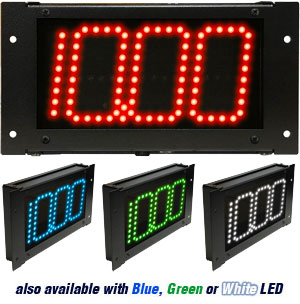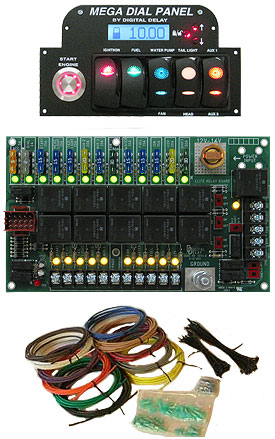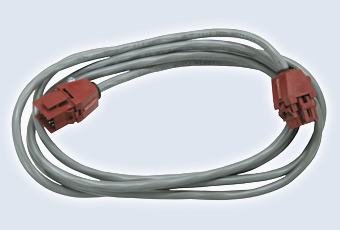Mega panel drag racing parts from Biondo Racing
Mega panel drag racing parts from Biondo Racing
SAL BIONDO DIVISIONAL EVENT VICTORIES
W: Sal Biondo R/U: Grant Lewis 1992 Gainesville Super Stock
W: Sal Biondo R/U: Pete Zawadski 1992 Numidia Super Stock
W: Sal Biondo R/U: Rod Lightner 1994 U.S. 13 Super Stock
W: Sal Biondo R/U: Jim Boburka 1994 Cecil County Super Stock
W: Sal Biondo R/U: John Lingenfelter 1995 Firebird Comp
W: Sal Biondo R/U: Frank Aragona Jr 1995 Englishtown Comp
W: Sal Biondo R/U: Kevin Robb 1996 Englishtown Comp
W: Sal Biondo R/U: Kent Ritter 1996 Maple Grove Comp
W: Sal Biondo R/U: Lincoln Morehead 1997 U.S. 13 Super Stock
W: Sal Biondo R/U: Dennis Steward 1999 Cecil County Super Stock
W: Sal Biondo R/U: Phillip Panaritis 2002 Lebanon Stock
W: Sal Biondo R/U: Ron Morehead 2002 U.S. 13 Super Stock
W: Sal Biondo R/U: Tommy Ciccarone 2003 Englishtown Comp
W: Sal Biondo R/U: Michael Iacono 2003 Numidia Stock
W: Sal Biondo R/U: Pat Ross 2003 U.S. 13 Comp
W: Sal Biondo R/U: Mark Hopkins 2004 Cecil County Comp
W: Sal Biondo R/U: Larry Pritchett 2006 Silver Dollar Comp
W: Sal Biondo R/U: Michael Hardee 2006 Maple Grove Comp
W: Sal Biondo R/U: Al Ackerman 2006 Richmond Comp
W: Sal Biondo R/U: Lee Zane 2007 Richmond Comp
W: Sal Biondo R/U: Dave Yediny 2009 Atco Comp
W: Sal Biondo R/U: Vinny Barone 2009 Richmond Comp
W: Sal Biondo R/U: Joe Carnasciale Sr. 2010 Maple Grove Comp
W: Sal Biondo R/U: Steve Graham 2010 Las Vegas Comp
W: Sal Biondo R/U: Frank Aragona Jr 2011 Cecil County Comp
W: Sal Biondo R/U: Chip Ippolito 2011 New England Comp
W: Sal Biondo R/U: Frank Aragona Jr. 2012 Epping Comp
W: Sal Biondo R/U: Steve Szupka 2012 Cecil County Comp
28 WINS IN 48 DIVISONAL FINALS
SAL BIONDO NATIONAL EVENT VICTORIES
W: Sal Biondo R/U: Stephen Negrini 1990 Englishtown Super Stock
W: Sal Biondo R/U: Grant Lewis 1993 Gainesville Super Stock
W: Sal Biondo R/U: Garrett Ghezzi 1993 Columbus Super Stock
W: Sal Biondo R/U: David Billingsley 1995 Houston Comp
W: Sal Biondo R/U: Jeff Taylor 1995 Columbus Super Stock
W: Sal Biondo R/U: Tom Martino 1995 Reading Comp
W: Sal Biondo R/U: Glenn Eck 1996 Reading Comp
W: Sal Biondo R/U: Jim Harrington 1999 Englishtown Super Stock
W: Sal Biondo R/U: Vinny Barone 2006 Englishtown Comp
W: Sal Biondo R/U: Al Ackerman 2007 Reading Comp
W: Sal Biondo R/U: Todd Patterson 2009 Chicago Comp
W: Sal Biondo R/U: Chuck Gallagher 2010 Gainesville Super Stock
W: Sal Biondo R/U: Anthony Bertozzi 2010 Englishtown Comp
W: Sal Biondo R/U: Frank Aragona Jr. 2011 Gainesville Comp
W: Sal Biondo R/U: Calvin Hill 2013 Englishtown Comp
W: Sal Biondo R/U: Don Pires Jr. 2013 Reading Stock
W: Sal Biondo R/U: Craig Marshall 2014 Norwalk Stock
18 National event wins in 34 final rounds
PETER BIONDO DIVISIONAL EVENT VICTORIES
W: Peter Biondo R/U: Larry Miller 2014 Reading Super Stock
W: Peter Biondo R/U: Jimmy Hidalgo 2014 Atlanta Super Stock
W: Peter Biondo R/U: Robert Cruzen 2014 Phoenix Super Stock
W: Peter Biondo R/U: Kyle Rizzoli 2014 Las Vegas Stock
W: Peter Biondo R/U: David Rampy 2013 SGMP Super Stock
W: Peter Biondo R/U: Mike Sawyer 2011 New England Super Gas
W: Peter Biondo R/U: Anthony Biongiovanni 2011 Englishtown Super Stock
W: Peter Biondo R/U: Mike Sawyer 2011 Englishtown Super Gas
W: Peter Biondo R/U: Vince Costa 2011 Bradenton Super Gas
W: Peter Biondo R/U: Jerry Silveus 2011 Gainesville Super Stock
W: Peter Biondo R/U: Carl Freeman 2011 Gainesville Super Gas
W: Peter Biondo R/U: Michael Hardee 2008 Silver Dollar Comp
W: Peter Biondo R/U: Michael Iacono 2007 Cecil County Super Stock
W: Peter Biondo R/U: Richard Kay 2006 Cecil County Super Stock
W: Peter Biondo R/U: Howard Barsky 2006 Englishtown Super Stock
W: Peter Biondo R/U: Dave Ficcaci 2006 Bradenton Super Stock
W: Peter Biondo R/U: Buddy Hughes 2006 Columbus Stock
W: Peter Biondo R/U: Joe Franco 2005 Lebanon Valley Stock
W: Peter Biondo R/U: Todd Hoven 2005 Cecil County Stock
W: Peter Biondo R/U: Larry Ericksmoen 2005 Orlando Stock
W: Peter Biondo R/U: Jimmy Hidalgo Jr. 2005 SGMP Stock
W: Peter Biondo R/U: Jim Fitzpatrick 2005 Gainesville Stock
W: Peter Biondo R/U: Len King 2003 Gainesville Super Stock
W: Peter Biondo R/U: Wes Leopold 2003 Orlando Super Stock
W: Peter Biondo R/U: Wayne Shaw 2003 Montgomery Stock
W: Peter Biondo R/U: Blair Patrick 2003 Silver Dollar Super Stock
W: Peter Biondo R/U: Kent Hanley 2003 Bristol Super Stock
W: Peter Biondo R/U: Doug Frazier 2003 Bristol Stock
W: Peter Biondo R/U: Brian Rowe 2003 Atlanta Stock
W: Peter Biondo R/U: Kevin Nicks 2003 Las Vegas Super Stock
W: Peter Biondo R/U: Shane Carr 2002 Atco Stock
W: Peter Biondo R/U: John Armstrong 2002 Lebanon Valley Stock
W: Peter Biondo R/U: Blair Patrick 2002 Gainesville Super Stock
W: Peter Biondo R/U: Harold Culpepper 2002 Montgomery Stock
W: Peter Biondo R/U: Sterling Simmons 2002 Bristol Stock
W: Peter Biondo R/U: Dennis Steward 2001 U.S. 13 Super Stock
W: Peter Biondo R/U: Michael Iacono 2001 Numidia Super Stock
W: Peter Biondo R/U: Brad Huntzberry 2001 Englishtown Super Stock
W: Peter Biondo R/U: Dennis Steward 2000 U.S. 13 Super Stock
W: Peter Biondo R/U: Angelo DiTocco 2000 Numidia Super Stock
W: Peter Biondo R/U: Fred Bartoli 2000 Quaker City Super Stock
W: Peter Biondo R/U: George Tamasi Jr. 2000 Lebanon Valley Super Stock
W: Peter Biondo R/U: Gene Daugherty 1997 Virginia Super Stock
W: Peter Biondo R/U: Leo Zynda 1997 Quaker City Super Comp
W: Peter Biondo R/U: Kevin Robb 1996 Lebanon Valley Comp
W: Peter Biondo R/U: Anthony Cretella 1996 Lebanon Valley Super Stock
W: Peter Biondo R/U: Dan Fletcher 1996 Orlando Super Stock
W: Peter Biondo R/U: Ricky Ray 1996 Kansas City Super Stock
W: Peter Biondo R/U: Steve Sweitzer 1995 Englishtown Super Stock
W: Peter Biondo R/U: Scott DeWitt 1995 Englishtown Super Comp
W: Peter Biondo R/U: Chuck Rothermel 1994 Maple Grove Super Street
W: Peter Biondo R/U: Sal Biondo 1994 Orlando Super Stock
W: Peter Biondo R/U: Larry Paden 1994 Virginia Super Street
W: Peter Biondo R/U: Jeff Kundratic 1993 Maple Grove Super Comp
W: Peter Biondo R/U: Tony Gambardella 1993 U.S. 13 Super Street
W: Peter Biondo R/U: Larry Mohar 1993 Englishtown Super Stock
W: Peter Biondo R/U: David Pazak 1993 Quaker City Super Street
W: Peter Biondo R/U: Charles Niland 1992 U.S. 13 Super Comp
58 WINS IN 77 DIVISONAL FINALS
PETER BIONDO NATIONAL EVENT VICTORIES
W: Peter Biondo R/U: Nathan Martin 1993 Indy Super Comp
W: Peter Biondo R/U: Rock Running 1994 Gainesville Super Stock
W: Peter Biondo R/U: Dan Fletcher 1995 Reading Super Stock
W: Peter Biondo R/U: Lincoln Morehead 1995 Indy Super Stock
W: Peter Biondo R/U: Dave Brun 1996 Atlanta Super Stock
W: Peter Biondo R/U: Angelo DiTocco 1996 Reading Super Stock
W: Peter Biondo R/U: O.D. Powell 1997 Reading Super Stock
W: Peter Biondo R/U: Vonnie Mills 1997 Indy Super Comp
W: Peter Biondo R/U: Larry Stewart 1999 Bristol Super Stock
W: Peter Biondo R/U: Pat Toomey 1999 Reading Super Stock
W: Peter Biondo R/U: Angelo DiTocco 1999 Richmond Super Stock
W: Peter Biondo R/U: Randy Running 2000 Atlanta Super Stock
W: Peter Biondo R/U: J. Allen Sherman 2000 Memphis Super Stock
W: Peter Biondo R/U: Gene Bichlmeier 2001 Gainesville Super Stock
W: Peter Biondo R/U: Dan Fletcher 2001 Reading Super Stock
W: Peter Biondo R/U: Jerry Jenkins 2001 Indy Super Stock
W: Peter Biondo R/U: Rock Running 2002 Brainerd Super Stock
W: Peter Biondo R/U: Thomas Baird 2002 Englishtown Stock
W: Peter Biondo R/U: Jeff Hefler 2002 Houston Super Stock
W: Peter Biondo R/U: Jeff Hefler 2003 Houston Stock
W: Peter Biondo R/U: Ben Wenzel 2005 Chicago Stock
W: Peter Biondo R/U: Lee Zane 2005 Chicago2 Stock
W: Peter Biondo R/U: James Vester 2005 Columbus Super Stock
W: Peter Biondo R/U: Jim Boudreah 2005 Columbus Stock
W: Peter Biondo R/U: Brent Darroch 2005 Indy Stock
W: Peter Biondo R/U: Jamey Picht 2006 Brainerd Stock
W: Peter Biondo R/U: Bill Rowe Jr. 2006 Gainesville Super Stock
W: Peter Biondo R/U: Tom Sheehan 2007 Bristol Super Stock
W: Peter Biondo R/U: Bill Hawk 2007 Gainesville Stock
W: Peter Biondo R/U: Matt Welker 2007 Indy Stock
W: Peter Biondo R/U: Michael Iacono 2007 Reading Stock
W: Peter Biondo R/U: Jeff Lane 2007 Sonoma Stock
W: Peter Biondo R/U: Steve Szupka 2008 Englishtown Stock
W: Peter Biondo R/U: Jeff Strickland 2008 Gainesville Stock
W: Peter Biondo R/U: Bret Voges 2008 St. Louis Super Stock
W: Peter Biondo R/U: Bruno Massel 2009 Brainerd Comp
W: Peter Biondo R/U: Donald Sabin 2009 Englishtown Super Stock
W: Peter Biondo R/U: Delaney Richardson 2010 Charlotte2 Super Gas
W: Peter Biondo R/U: Dan Fletcher 2010 Chicago Stock
W: Peter Biondo R/U: Merrill Schrimscher 2011 Gainesville Super Stock
W: Peter Biondo R/U: Jackie Alley 2011 Las Vegas2 Super Stock
W: Peter Biondo R/U: Dana Keniry 2011 Pomona2 Super Gas
W: Peter Biondo R/U: Dale Koncen 2011 Reading Super Gas
W: Peter Biondo R/U: Bob Dennis 2012 Bristol Super Stock
W: Peter Biondo R/U: Chris Butcher 2012 Englishtown Super Street
W: Peter Biondo R/U: Mark Kirby 2013 Las Vegas2 Stock
W: Peter Biondo R/U: Andrew Durham 2014 Las Vegas1 Super Stock
W: Peter Biondo R/U Ryan Mangus 2014 Las Vegas1 Stock
W: Peter Biondo R/U: Jeff Jewell 2016 Charlotte2 Super Stock
W: Peter Biondo R/U: Michael Iacono 2016 Reading Stock
W: Peter Biondo R/U: Joe Lisa 2017 Charlotte1 Super Stock
W: Peter Biondo R/U: Russ Linke 2017 Englishtown Stock
52 WINS IN NATIONAL EVENT 78 FINALS
Below is just a summary, but to really appreciate all that the “Race Air Pro” can do, you will need to read about the features below, or you can go directly to the Computech Racing Systems Web Site, and view the entire instruction manual.
2 Dial-In programs –
1. Dial-In, Standard Method.
This program is designed to help class and bracket racers predict an elapsed time (ET) for the next run based on changes in the horsepower correction factor. The Standard Dial-In method is Computech’s easiest to use and more accurate ET prediction program.
The correction factor method used can be changed from STD to SAE in the program setup area. The SAE method should produce more consistent results for large barometric pressure changes or different track elevations.
The program works for all length tracks and is compatible for use with either gasoline or methanol fuel. However, a setup fuel choice must be made to get accurate ET predictions. The program will automatically go to the fuel setup program during the first use.
The Dial-In is predicted from 1 previous reference run (no database of runs is used or required). The reference run, on which the prediction is based, is selected by the user. The reference run should be the most recent good full run when the vehicle performed as expected. Runs that had tire spin, unusual 60 ft times, or gusty wind conditions should not be used for the reference run. Change the run used as the reference (old) run as the race day progresses. It is important to use the most recent good full run as the reference. The most recent run will best represent the current traction and weather conditions.
2. Dial-In, Density Altitude Method.
This program is designed to help class and bracket racers predict an elapsed time (ET) for the next run based on changes in the density altitude. This program requires that the Dens Alt Setup function be run for each vehicle so that the program can calculate an elapsed time versus density altitude ratio. The program has memory for 3 different data sets.
The Dial-In is predicted from 3 previous runs that are entered into the computer memory during the Dens Alt Setup program and a recent reference run. The reference run. on which the prediction is based, is selected by the user. The reference run should be the most recent good full run when the vehicle performed as expected. Runs that had tire spin, unusual 60 ft times, or gusty wind conditions should not be used for the reference run. Change the run used as the reference (old) run as the race day progresses. It is important to use the most recent good full run as the reference. The most recent run will best represent the current traction and weather conditions. Since this program utilizes runs from memory, it is compatible with whatever fuel being used.
Throttle-Stop program –
This program is designed to help super class racers predict the throttle stop timer settings for the next run based on changes in the correction factor. The correction factor method used can be changed from STD to SAE in the program setup area. The SAE method should produce more consistent results for large barometric pressure changes or different track elevations. This program requires that the T-Stop Setup function be run for each vehicle or combination so the program can calculate an elapsed time versus throttle stop timer setting ratio. The program has memory for 3 different data sets.
The program works for all length tracks and is compatible for use with either gasoline or methanol fuel. However, a setup fuel choice must be made to get accurate timer predictions. The program will automatically go to the fuel setup program during the first use. The setup function must be redone if you change anything that affects vehicle performance.
The timer setting is predicted from 2 previous runs that are entered into the computer memory during the T-Stop Setup program and a recent reference run. The reference run, on which the prediction is based, is selected by the user. The reference run should be the most recent good full run when the vehicle performed as expected. Runs that had tire spin, unusual 60 ft times, or gusty wind conditions should not be used as the setup runs or the reference run. Change the run used as the reference (old) run as the race day progresses. It is important to use the most recent good full run as the reference. The most recent run will best represent the current traction and weather conditions.
Run Completer – This program will predict what the elapsed time and MPH would have been on a run that was aborted prior to the finish line. In break-out classes it is common practice to lift off of the throttle or to brake the vehicle prior to the finish line in an effort to take only enough win light to get there first and to avoid the possibility of breaking out. This program utilizes the 1000 ft elapsed time, the 1/4 mile elapsed time, the 1/4 mile MPH from a previous full run, and the 1000 ft elapsed time from the aborted run. To use this program for 1/8 mile racing, substitute the 330 ft elapsed time for the 1000 ft elapsed time, the 1/8 mile elapsed time for the 1/4 mile elapsed time, and the 1/8 mile MPH for the 1/4 mile MPH.
Test & Tune –
Holley Jetting –
The Holley Jet change program is designed to work with Holley carburetor jets from #50 through #100. The program utilizes actual jet flows as opposed to drill sizes when making the computations. Use this program with the baseline tune up information to predict the proper jet to use as the ADR changes.
Fuel Injection Jetting –
This program is designed to work with mechanical fuel injection systems. The first time this program is used, all the engine fuel nozzle sizes must be entered in the setup. When the setup is completed the computer will remember the total nozzle area for future calculations. This program and the Fuel Injection, High Speed Bypass Adjust program use the same total nozzle area number from computer memory. Use this program with the baseline tune up information to predict the proper jet to use as the ADR changes.
Precision Jetting –
The Precision Jet program is designed to work with precision drilled/reamed and flowed jets. Hand drilled jets are not accurate enough for precise fuel metering. This program is designed to accept carburetor jet diameter in inches or millimeters. Make sure to enter the decimal point and zeros to denote the diameter dimension. It will work with any fuel. Use this program with the baseline tune up information to predict the proper jet to use as the ADR changes.
Mikuni Jetting –
This program is designed to accept Mikuni carburetor jet numbers. Use this program with the baseline tune up information to predict the proper jet to use as the ADR changes.
Keihin Jetting –
This program is designed to accept Keihin carburetor jet numbers. Use this program with the baseline tune up information to predict the proper jet to use as the ADR changes.
Chassis Set-Up –
By percent or weight. This program computes the static weight to expect at each wheel of a vehicle for a given chassis setup based on the total vehicle weight, the desired left side weight distribution percentage, the desired rear weight distribution percentage, and the desired right front to left rear diagonal weight distribution percentage.
More Programs Coming!
(For an addditional FEE) The new version of Crew Chief Pro will be able to send the Tune Up information (ET and Throttle Stop predictions) by TEXT MESSAGE, EMAIL, and/or the regular PAGER. It will accept phone numbers and email addresses, and it will send the same information to their existing pager (if customer has a pager)every 2 minutes.
At tracks where the phone signal isn’t so good then the pagers will have to work, however at tracks where you park a mile from the starting line then the Text Messaging will be a huge improvement.
Here is what you need for all this to happen with a cell phone:
A weather station that can be hooked up to a laptop and communicate with the installed (pager enabled) Crew Chief Software. Although we are not sending the messages to a pager, the PAGER ENABLE version of Crew Chief is needed to send the message to a cell phone. Transmitters and pagers are only needed if you want to get messages sent to a pager in addition to the cell phone messages. If pager messages are not needed, you save from spending money on a transmitter and pager option.
A laptop that has internet access for the computer to e-mail, or text the info.
Keep in mind, a Crew member DOES NOT need be at the track and can still get the info on their phone OR email. Many people call a friend for help at the track deciding the ET or T-Stop, now they can get the important weather info to their friend’s phones or email so these people can help them.
(If more than 1 racer is getting predictions for another car, these texts, and or page, a license fee for the pager enabaled software, costs about $199.)
Before ordering a B&M Pro Bandit Shifter, Please note:
The shifter has a rear exit cable, however it is made to bring the cable to the transmission from the front (Not the rear) – utilizing the engine mid plate as the shifter cable bulk head anchor. The quick disconnect cable extension (which is included in the “kit”), will complete the shifter cable connection to the transmission’s selector lever. (The lever is also included in the “kit”.) The B&M Pro Bandit shifters that we sell with the “kit” come with the following:
an 8′ super duty race cable
a powerglide pro lever
quick disconnect and cable extension
If your vehicle does not have a full mid plate, then you will have to fabricate a strong cable anchor bracket to work with your application. Dimensions are critical when making your cable anchor…be accurate!
B&M Pro Bandit cables and assorted hardware are made specifically for the Pro Bandit Shifters only!! Other hardware kits and cables will not work so be sure to buy this shifter with the complete kit if needed.
Dynatech is pleased to announce its all-new contingency awards program. Dynatech Competition Exhaust Systems will post cash contingency awards for any sanctioned drag race in the U.S.A. for two years from the original purchase date. Thats right! Any NHRA, IHRA, Super Chevy, B&M Series, JEGs Super Quick, NMCA, NMRA, Summit Import, E.T. Series, Ten Tucks, Big Bucks, and local bracket races. The Drag Contingency program is valid for two years after purchase of your new Dynatech Headers. This program is non-transferable. Paperwork, and registration forms are included with the headers.
Payout Breakdown:
Event Winner – $100
Runner-Up – $50
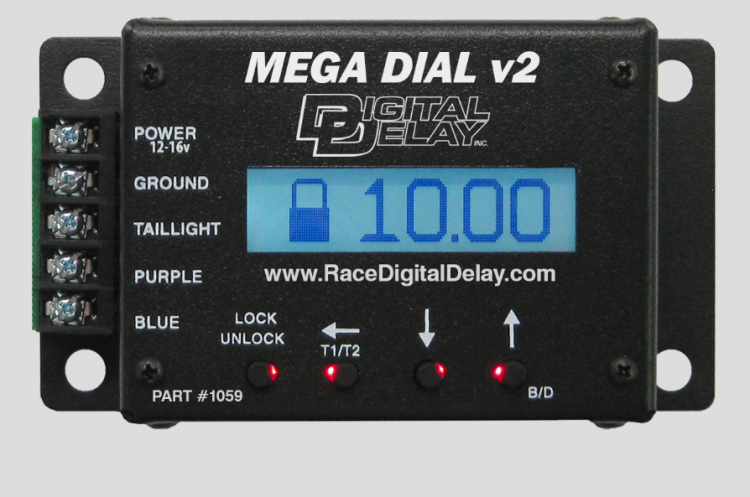
The Pro Screen contains all of a racer’s PRO TREE settings which include (pro tree) delay, throttle stop timer, and a time or rpm shift point setting. All of these settings are independent of the settings used in bracket racing. This means that a racer can run both Pro Tree and Brackets without having to change the settings in the unit. Switching back and forth from Pro Tree to Bracket Racing is now as easy as a touch of a button. All settings are retained in memory.
All numbers and text are lit up on a super large LCD display, making for the ultimate in user friendliness! (everything is in plain english).
A preprogrammed feature which prevents the transbrake from turning on if the transbrake switch is accidentally touched.
The Shift Activator Output allows you to shift on Time or RPM up to 5 times. RPM is adjustable to 50 rpm increments. You can shift as much as 5 different times, at 5 different RPM’s. You can even split the shifts – some could be by RPM, and some at time. This box is legal, but this feature is Not legal in all sanctions.
Our patented “Programmable Throttle Stop Override” allows you to speed your car up a set amount (set by you). Before or during the time your car “hits” the throttle stop, you can override a preset amount in your timer. You set it up to subtract a certain amount of time, and have the option to override or “subtract” as many times as you wish.
Our patented “Driver Reaction Tester” allows you to practice your reaction times while sitting in your car and using your own button. A true reaction readout is displayed. (Covered under U.S. Patent Number 6,166,629).
Lets you stage with your gas pedal to the floor, and the motor stays at a low preset rpm until you press the transbrake button – then the motor automatically goes up to the converter or 2-step. (Requires the purchase of a 2 position throttle control, Part #TS2P, and can be found on our Throttle Stop Page.)
This feature allows you to have the gas pedal to the floor with the motor staying at a low preset RPM until after your top bulb comes on, at that point the motor goes up to the 2-step. This requires the purchase of an in line throttle stop. We recommend our Premium Starting Line Control (Part #SLP), which can be found on our throttle stop page.
A preprogrammed feature which prevents the transbrake from turning on if the transbrake switch is accidentally touched.
This feature lets you add or subtract a preset amount (of your choice) to your delay time after you release the button. (Programmable to the .01 [hundredth] on some boxes, and to the .001 [thousandth] on others). Also, you can tap as many times as you like and it will add to the total tap time.
With these features you are able to double hit the tree with 1 button or 2 separate buttons. “How Late” Display will show you which “hit” launched the car and by how much.
The new option named “CrossTalk” is being used in bracket racing, electronics (delay box) classes that use the full tree and handicapped dial ins. This feature has the potential to go nationwide in 2004.
With this option, the amber lights will be focused directly at the driver in his/her lane. Each driver leaves off his top bulb (even the faster car) with no more crossing over. The top amber light in each lane will activate with the start of the slower dialed cars tree countdown. The slower cars tree will continue on its normal .5 second countdown to green. The faster cars top light will stay on for the standard .5 second duration plus the amount of handicap between the two lanes, and then it will continue to countdown after that at the .5 sec countdown to green.
A Starting Line Control can be very helpful when racing with “Crosstalk” by holding your motor at a low preset RPM until after your top bulb goes out.
The SCROLLING ARROW KEYS, allow racers to scroll (up or down) delay times, dial-ins, throttle stop time, etc. A very handy feature when making small number changes.
